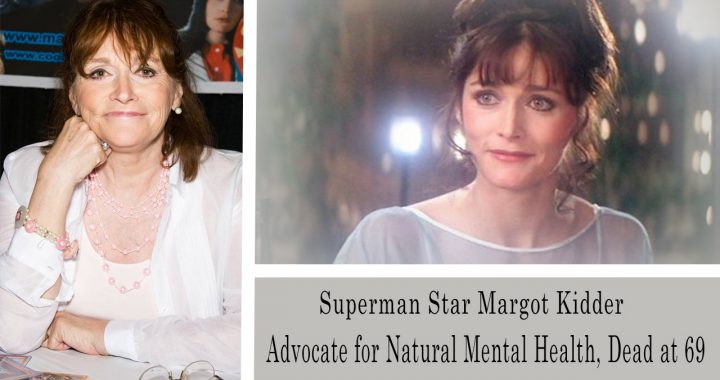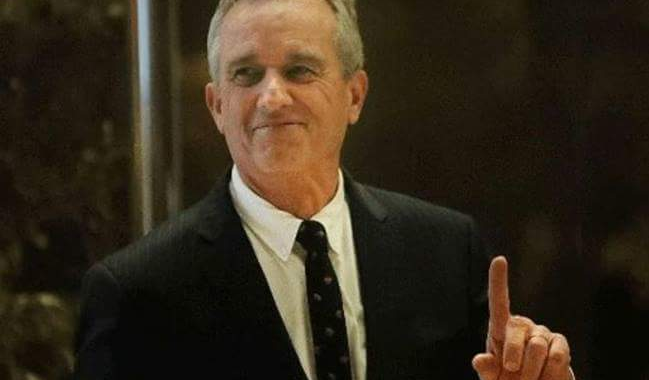MARGOT KIDDER‘SUPERMAN’ STAR DEAD AT 69
5/14/2018 9:24 AM PDT
‘Superman’ Star Margot Kidder Dead at 69
EXCLUSIVEMargot Kidder, the actress who played Lois Lane in “Superman,” died Sunday in Montana … TMZ has learned.
Margot was at her home when she passed away, according to the spokesperson at Franzen-Davis Funeral Home in Livingston, MT. The cause of death is unknown at this point.
Bruce Becker, the Park County Attorney, tells TMZ … an unknown person called police to report Margot was unconscious and not breathing. Police responded and found her dead. The Livingston Police Chief says foul play is not considered a factor, but her death is now under investigation.
Margot starred opposite Christopher Reeve in 1978’s “Superman,” and also in the 3 sequels. She continued acting right up until this year, taking small roles in TV shows and movies — but also had stage roles … including “The Vagina Monologues” on Broadway. She reportedly had 2 more roles yet to be released.
Margot had a very public battle with bipolar disorder for years. During her struggle she was briefly homeless in 1996. Margot became an advocate for mental health after that incident.
She’d been married 3 times, although she’d been single since the ’80s.
Margot is survived by a daughter.
RIP
Lois Lane returns
‘I’ve had quite a few romances with really great men, more than most people perhaps, and I don’t miss them at all,” confesses Margot Kidder, punctuating her candour with an old-lady cackle. “I’m at a different phase of my life now.”
The Canadian-born actress who shot to fame in the late Seventies as Lois Lane in the Superman movie franchise has more than one saviour these days.
One is middle age, which serves as her cloak. Much of the glamorous thrice-married-and-divorced star, who counted Pierre Elliott Trudeau among her lovers, is hidden beneath a healthy weight gain, loose, comfortable clothes, a curtain of long auburn hair and large horn-rimmed glasses.
At 58, Ms. Kidder feels liberated from the expectations of others. “In middle age, you walk into a room and you don’t exist, and so you go, ‘Wait a minute. I had this identity as this hot young babe.’ You have to re-envision yourself, and I’ve loved it. You can be who you are and say what you think without thinking, ‘Is this going to make me less attractive as a female and am I batting my eyes enough at the guy?'”
The only man she occasionally turns to gaze at fondly is Abram Hoffer, president of the International Schizophrenia Foundation, who sits at the head of a small table in a downtown Toronto hotel where we meet.
He is her other saviour, a 90-year-old Superdoc in a crumpled tan suit, who has plucked patients from the grip of mental illnesses for over 40 years through the use of controversial orthomolecular psychiatry – a belief that the cure is in balancing or correcting a patient’s biochemistry.
By following his advice on supplementing her diet with a tailor-made regimen of vitamins, minerals, amino acids, enzymes, hormones and essential fatty acids – and no longer taking any pharmacological drugs – Ms. Kidder says she has freed herself of the manic depression she suffered all of her life and that caused her embarrassingly public meltdown in 1996.
Found on the streets of Los Angeles in a paranoid state, her hair hacked off and without her dental plate, Ms. Kidder, who had gone off her medication, became the poster girl for mental illness.
Shortly after, she visited her family in Vancouver and visited an acupuncturist who recommended she see Dr. Hoffer, an alternative-medicine pioneer who was born on a Saskatchewan farm in 1917 and likes to call his star patient Margie.
The two now keep in touch and regularly speak at conferences, including a recent one on nutritional medicine in Toronto, presented in part by the International Society for Orthomolecular Medicine.
Asked if she sees her infamous psychotic break as a good thing, Ms. Kidder answers initially with her cackling laugh, while Dr. Hoffer intones softly that “it was very good for the whole world.”
But there is little conversation that she shies away from and so, after a pause, Ms. Kidder leaps right in with her straightforward gaze, her hands on the table, palms face down and sliding back and forth across the smooth surface, as if she wants to brush away any crumb of misunderstanding.
“I had to look at the fact that I was an actress and you’re not allowed to get fat,” she says, leaning into the table. “I would go for one month on hard-boiled eggs and grapefruit and black coffee and then I’d have tequila and hot dogs for a week. There was no food in my brain, and thus it didn’t work.”
Fame was not to blame. “Whether I’d been working in a bank or working as an actress, it would have been the same experience. It’s my body.”
But some people find the manic phase of the illness highly creative. Did it ever help her in her work as an actress?
“I would say that an enormous number of people in the arts could be called bipolar,” she responds. “But these labels are very destructive. Human beings aren’t labels. They’re complex things of mind, body, soul.”
She and Dr. Hoffer then fly off together on a long digression about the malevolence of the medical establishment, talking more to each other than to me.
Ms. Kidder: “Doctors pathologize so many simply human feelings. Now, people in a state of grief automatically take an antidepressant.”
Dr. Hoffer: “When I started in psychiatry, there were 30 or 40 diagnostic terms. Now there are three or four hundred.”
I try to turn the conversation back to her.
“Why don’t you just listen to Dr. Hoffer?” she snaps with the annoyance of a schoolmarm.
They soar off again.
“The great tragedy of Dr. Hoffer’s work is that until the last few years, people turned to it not as the first line of defence, but when they were at the end of their rope,” Ms. Kidder puts in.
“There’s this statement that if you treat someone who is sick [with drugs] you have two problems,” adds Dr. Hoffer, who is the author of several books and maintains a private consultancy in Victoria. “Treat the illness and then treat the results of the treatment.”
“Nobody has ever died from taking too many vitamins,” Ms. Kidder coos as she peers fondly at her hero through her owlish glasses.
Turning to me, she instructs: “Nobody can make a lot of money off anyone getting well naturally, but they can make trillions of dollars getting well off synthetically made drugs.”
I am still wondering how her bouts of mania and depression affected her work.
“I am as good an actress sane as I was crazy, okay?” she says with a forced smile of perfect teeth.
Does she ever wonder if they affected her marriages?
“It’s hard to say,” she allows, relaxing a bit. “Generally, my experience is that you have long periods of being like anyone else and then you have episodes where you are a mess. So, I can’t say whether my first marriage [to writer/director Thomas McGuane, the father of her only child, Maggie]fell apart because of manic depression or if it fell apart because we were both too self-centred and egomaniacal to be able to compromise with each other,” she says, laughing at her assessment of herself.
Ms. Kidder luxuriates in the comfort of her middle-aged skin. A long-time resident of Livingston, Mont., she “gets paid enough from acting to make a living” and likes to spend time with her dog and two grandchildren who live nearby.
“I don’t think any of us who do this [orthomolecular treatment]are so silly as to assume that vitamins are going to cure you from life. You’re going to get some body blows that just happen,” she says as she turns to Dr. Hoffer, who smiles at her benevolently and nods his bald head in agreement. “That’s just called living,” she concludes calmly, still looking at him.





